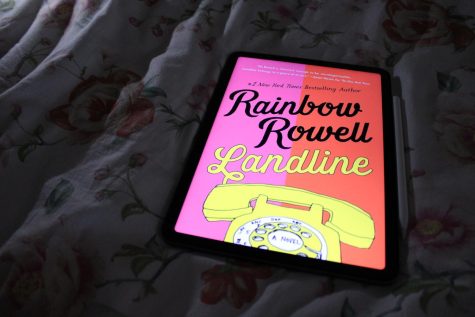Film in review: Stephen King’s “Pet Sematary”
April 10, 2019
While we’ll probably never reach a stage where every Stephen King novel, novella, short story and so forth have been adapted to the big screen, that isn’t stopping us from going and remaking the ones that already have been.
“Pet Sematary” is the latest of the latter, and it’s at its most effective when it’s trying to be anything but conventional. It falters, though, when it stumbles into the formulaic tropes of the horror genre. Whether that’s by studio demand or born out of a faithfulness to its source material, I don’t know; I didn’t read the book.
The plot centers on a family of four—father Louis Creed, mother Rachel and children Ellie and Gage—and their cat Church, who have recently relocated from Boston to the more simple and quiet life of backwoods Maine. Once there, young Ellie quickly befriends elderly neighbor Jud, who warns her never to venture in the woods alone, noting the aptly-named “Pet Sematary” as a dangerous place.
On Halloween, Jud shows Louis that Church has been hit by a vehicle on the notoriously animal-unfriendly highway outside the Creed home. Louis and Rachel are very sensitive about the subject in relation to their children, especially Ellie, so they resolve to tell her that her beloved cat has run away. Feeling sorry for Ellie, Jud takes Louis past the “Pet Sematary” to bury Church, advising him to bury the cat in a specific spot deep in the woods. The next day, Church appears to have returned from the dead, only he isn’t the lovable and cuddly ball of fur he once was.
From there, matters go from bizarre to terrifying as a Murphy’s Law of unfortunate happenings begin to plague the Creed family.
The film has a drab tone that will surely turn off viewers. Even author Stephen King has gone on record saying “Pet Sematary” scares him the most of all his works, as well as that he isn’t a particularly huge fan of its overall pessimistic philosophy. Deriving an implicit opinion of the film based on that alone, this isn’t something I’m going to watch in my leisure time anytime soon.
Aside from its tone, the film works better when it’s not a victim to its attempt at being a prototypical horror film. The jump-scares, lucid dreams/hallucinations and other tropes that have long expired in their effectiveness feel like preferential commas and superfluous uses of the word “that” that plague otherwise strong sentences.
Take out the latter and “Pet Sematary” could’ve easily been marketed as a suspense, which it does a better job at being than a horror film. That being said, as far as horror films are concerned, the film fails to be—for what it’s worth—anything truly original or even worth remembering.
At its most effective, “Pet Sematary” is a heartbreaking and melancholy “What-if?” simulation about the anxieties of parenthood. This is hampered, however, by its inexplicable foray into exhausted horror territory. What could’ve been an allegory to the very terrifying realities that course through our existence is suffocated by a need to be formulaic and generic. 3/5






































































